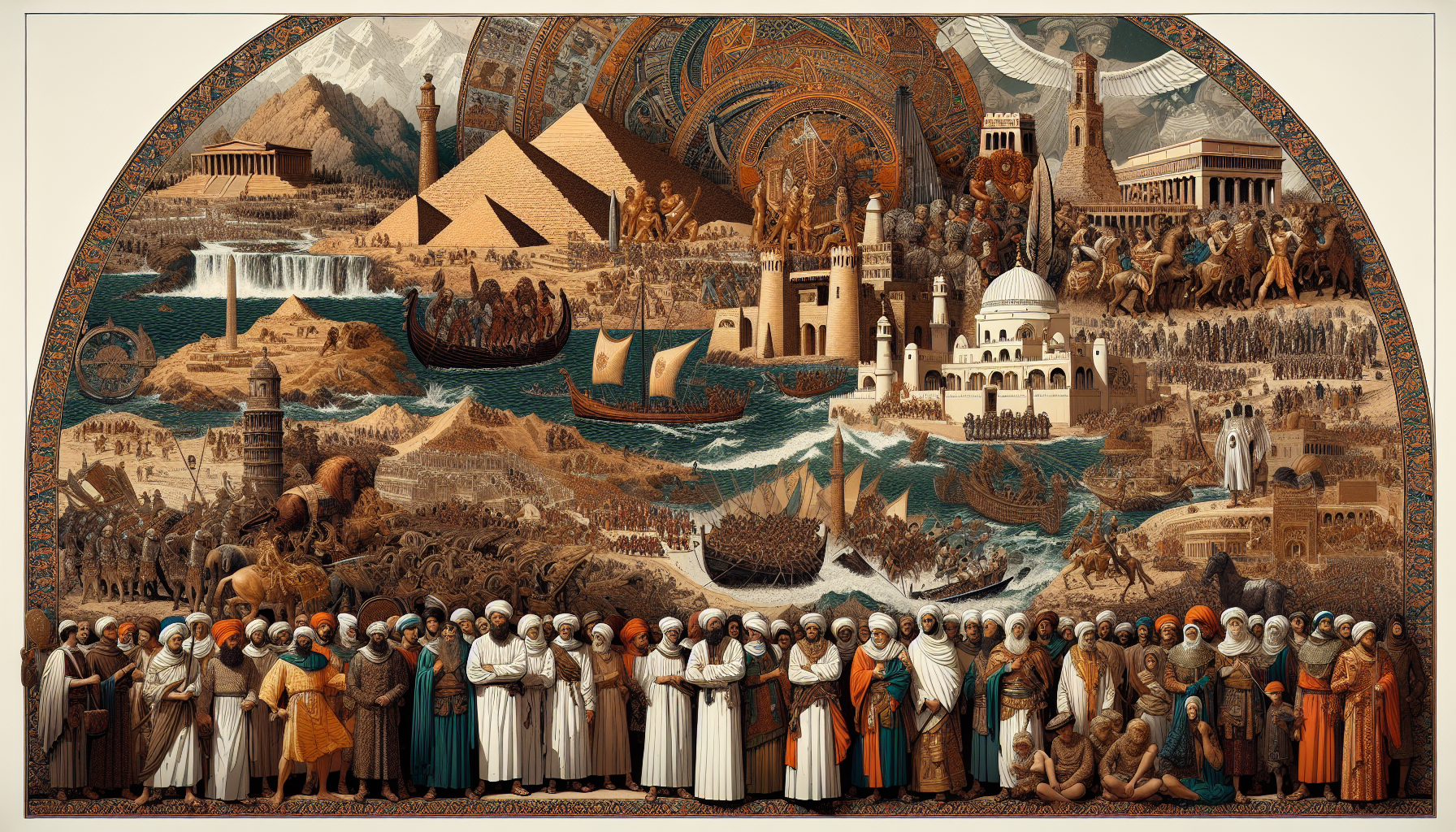
Table of Contents
- The Region of North Africa
- Ancient Egypt and the Development of Civilization
- The Sea Peoples and the Bronze Age Collapse
- Carthage, Rome, and the Punic Wars
- The Arab Conquests and Medieval Dynasties
- The Modern Era
- FAQ
The Region of North Africa
North Africa, consisting of five countries - Egypt, Libya, Tunisia, Algeria, and Morocco - is a region rich in history and cultural significance. With a population of approximately 200 million people, it is home to diverse communities and has been shaped by various civilizations throughout the centuries.
Ancient Egypt and the Development of Civilization
Ancient Egypt, located along the banks of the Nile River, is renowned for being one of the first great civilizations on the African continent. Its history is divided into three main periods: the Old Kingdom, the Middle Kingdom, and the New Kingdom.
The Old Kingdom marked the establishment of the pharaoh's rule and the construction of iconic pyramids. However, it was followed by a period of civil war known as the First Intermediate Period. The Middle Kingdom saw the reestablishment of pharaonic rule and the expansion of Egyptian territory. During this time, there was also peaceful migration from the Near East to Egypt.
The New Kingdom was a time of great military might for Egypt, as it engaged in wars, signed peace treaties, and established alliances with neighboring kingdoms. It became an integral part of the larger Near Eastern world, fostering a period of commerce, diplomacy, and imperial power.
The Sea Peoples and the Bronze Age Collapse
The Sea Peoples were seafaring marauders who played a significant role in the Bronze Age Collapse, a period of collapse and contraction for major civilizations in the Near East. Libyan tribes, who had long raided Egyptian territory, allied with the Sea Peoples. While Egypt managed to withstand the onslaught, it was weakened in the aftermath.
Following the decline of Egypt, Libyan warlords gained control over the state, leading to the establishment of the Libyan-dominated Twenty-Second Dynasty. Eventually, Shoshank, the Libyan commander-in-chief, seized power in 945 BC, uniting Egypt and ushering in a period of military and economic resurgence.
Carthage, Rome, and the Punic Wars
Carthage, founded by Phoenician settlers, rose in prominence and became a major power in the Western Mediterranean, challenging the influence of Greek city-states. The Romans and Carthaginians engaged in three brutal wars known as the Punic Wars. While Carthage initially experienced victories, Rome ultimately emerged triumphant.
Rome's control over North Africa lasted for 600 years, with the provinces of Egypt and Africa playing vital roles within the Roman Empire. The provinces supplied grain to feed the massive population of Rome and other major cities throughout the empire.
The Arab Conquests and Medieval Dynasties
The Arab Rashidun and Umayyad Caliphates conquered North Africa, establishing their rule and using the region as a staging ground for further conquests. The Abbasid Caliphate followed, bringing about a more inclusive, multi-ethnic state. However, the region saw the rise and fall of various dynasties, including the Fatimids, Almoravids, and Almohads.
In the 16th century, the Ottoman Turks conquered most of North Africa, which later transitioned to autonomous vassal states. European powers, such as France and Spain, gradually exerted their influence and established colonies in the region.
The Modern Era
In the early 20th century, North African nations began to seek independence from their European colonizers. Egypt gained independence in 1922, followed by Libya in 1951, Tunisia and Morocco in 1956, and Algeria in 1962. The region faced various conflicts and struggles during this period.
Today, North Africa continues to evolve and modernize, with a growing population and a complex geopolitical landscape. The rich history and cultural heritage of the region serve as a testament to its enduring significance.
FAQ
1. What are the countries in North Africa?
North Africa consists of Egypt, Libya, Tunisia, Algeria, and Morocco.
2. What were the major civilizations in ancient North Africa?
Ancient Egypt, Carthage, and the Roman Empire were significant civilizations in ancient North Africa.
3. What were the Punic Wars?
The Punic Wars were a series of conflicts between Rome and Carthage for control over the Western Mediterranean.
4. When did North African countries gain independence?
Egypt gained independence in 1922, followed by other North African countries throughout the 20th century.
5. What is the current state of North Africa?
North Africa is a region experiencing rapid modernization, with a growing population and ongoing geopolitical challenges.
Thank you for reading this blog post on the history and cultural significance of North Africa. We hope you found it informative and gained a deeper understanding of this diverse and fascinating region.
DR MISBAH ULLAH KHAN OFFICIAL

0 Comments